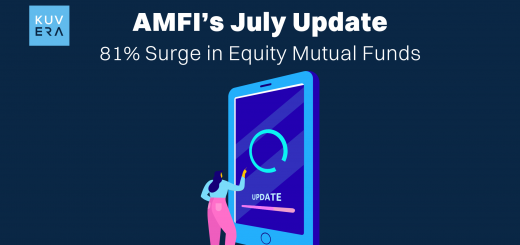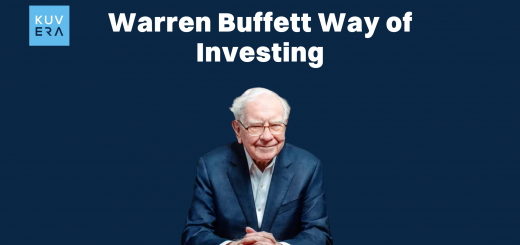What are passive funds? What are the benefits of passive funds? Actually, the benefits of passive funds can be compared to aged wine. Here’s how:
Let’s say, “aged wine and investments taste better”. This phrase draws parallels between the appreciation of aged wine and the advantages of long-term investments, suggesting that both can improve with time and patience. It encapsulates the idea that both physical and financial assets can appreciate in value and quality with time, patience and thoughtful management.
This is especially relevant for passive funds. Passive investing underscores the rewards of a long-term perspective in investing, emphasizing the benefits of enduring value and the satisfaction that comes with seeing patience and foresight pay off over the years.
Why are Passive Funds perfect for long-term investments?
Let us understand how passive mutual funds can fit the idea of aged wine aka. long-term investing:
1. Recognition over time
Just as aging wine requires time to develop its full flavour profile, long-term investments similarly benefit from extended holding periods to maximize their growth potential. Investments can grow and compound over time, capitalizing on economic cycles and market trends. This compounding effect accelerates wealth accumulation and boosts overall investment returns. In times of economic expansion, businesses often see improved profitability, leading to potential appreciation in stock prices and further enhancing investment returns.
2. Value Enhancement
Aged wine becomes more valuable to connoisseurs due to its rarity, complexity and the care taken in its production and storage. Similarly, long-term investments in high quality assets like reliable businesses or diversified funds like index funds produce superior returns as they withstand market volatility and potentially appreciate in value over time.
Start investing in Index Funds.
3. Risk Management
Aged wine is less volatile in taste compared to younger wines. Likewise, long-term investments mitigate risk through diversification and a patient approach. Diversifying across asset classes, sectors and geographic regions helps spread risk and reduces the impact of adverse market movements on the overall portfolio. This diversified approach acts as a buffer, safeguarding investments against sudden market downturn and can be easily achieved via passive investing in index funds and ETFs.
4. Patience
Aging wine demands patience as it matures to its fullest flavor potential, paralleling the disciplined approach necessary for successful long-term investing. Investors who maintain a steadfast commitment to their investment strategies and avoid being swayed by short-term market fluctuations are more likely to realize their financial goals over time. This disciplined approach can allow them to capitalise on market opportunities while remaining resilient against temporary market volatility, ultimately fostering sustained growth and stability in their investment portfolios.
5. Long-Term Planning
Just as aging wine requires meticulous attention to storage conditions and timing to develop its optimal flavour, successful long-term investments necessitate deliberate planning. Investors must define their financial goals, assess their risk tolerance, and outline a strategy that aligns with their objectives. Selecting the right wines for aging involves knowledge of grape varieties, regions, and vintages. Similarly, making sensible investment choices entails researching and understanding different asset classes, sectors, and individual securities. It requires considering factors such as historical performance, economic outlook, and management quality.
6. Quality Over Quantity
The phrase also suggests that the quality of the experience (whether tasting aged wine or reaping the benefits of long-term investments) often surpasses the initial attraction of quick gains or instant gratification. It encourages individuals to prioritize enduring qualities that improve with time. It underscores the importance of making deliberate, thoughtful choices in both tasting experiences and investment decisions rather than seeking immediate results. By focusing on long-term goals and strategies, individuals can cultivate greater satisfaction and meaningful outcomes that evolve and mature with time, contributing to a more fulfilling and successful journey in both tasting and investing realms.
Passive investments encompass various types of financial instruments like index funds, ETFs, Fund of Funds (FoFs) and more designed to track a benchmark or index rather than actively managed by a fund manager. Long-term investing through passive investments provides a disciplined and cost-effective strategy for wealth accumulation over time. By incorporating passive funds into a well-rounded investment strategy and maintaining disciplined monitoring and rebalancing, investors can strategically position themselves for future growth and financial security. This approach strengthens their portfolios and empowers them to pursue their financial goals with enhanced confidence and stability.
Want to know more about active vs passive funds? Click here.
7. Diversification
Passive funds India provide broad exposure to an entire market index or a specific segment of the market. This diversification helps spread risk across multiple securities, reducing the impact of individual stock performance on the overall portfolio. Indices typically consist of a large number of stocks representing various companies within a specific sector, market size (like large-cap, mid-cap, or small-cap) or a broader market (like Nifty 50).
Nifty 50 is India’s benchmark stock market index, managed and operated by the National Stock Exchange (NSE). It consists of 50 large, actively traded Indian companies listed on the NSE which represent various sectors of the Indian economy and are selected based on factors such as market capitalization, liquidity, and trading frequency.
8. Historical Performance
Stock market indices have shown historical resilience and growth. Despite short-term fluctuations and periodic downturns, indices have generally exhibited an upward trajectory over long periods. As economies expand and businesses grow, the overall market tends to appreciate in value. Indices capture this overall economic growth, reflecting the collective performance of the companies included in the index. Passive Investing via index funds or ETFs can serve as a hedge against inflation. Historically, equities have tended to outpace inflation rates over the long term, helping investors preserve purchasing power and achieve real returns on their investments. The table below displays the performance of broad market indices over the last five years.
| Index Name | 1 Month | 3 Months | 1 Year | 3 Years | 5 Years |
|---|---|---|---|---|---|
| Nifty 50 | 11.72% | 9.06% | 32.15% | 56.89% | 106.65% |
| Nifty Bank | 10.06% | 9.26% | 18.82% | 50.19% | 68.24% |
| Nifty 500 | 12.33% | 11.84% | 43.94% | 70.60% | 134.74% |
| BSE Sensex | 11.33% | 8.75% | 28.71% | 55.18% | 103.47% |
| BSE 500 | 12.35% | 11.73% | 43.12% | 69.22% | 134.22% |
(Source: https://www.niftyindices.com/) Data as on 19 July 2024
Analysis of Historical Performance
- Over the past year, all indices have delivered strong returns, ranging from 18.82% (Nifty Bank) to 43.94% (Nifty 500 and BSE 500). This period includes recovery from the initial impacts of the COVID-19 pandemic and subsequent economic stabilization.
- Over the longer term (3-5 years), the indices have shown significant growth, highlighting substantial gains across all indices.
- Nifty 500 and BSE 500 consistently show higher returns across all time frames compared to Nifty 50, Nifty Bank, and BSE Sensex. This suggests that broader market indices, which include a larger number of stocks, have generally outperformed narrower indices focused on specific sectors or market segments.
- Short-term fluctuations are common in stock market indices, but over longer periods, indices tend to reflect the overall growth and resilience of the economy.
9. Lower Costs
Index funds and ETFs are passively managed, meaning they aim to replicate the performance of a specific index rather than actively selecting and trading securities. This passive approach requires less research, monitoring and trading activity compared to actively managed funds. As a result, the management fees and expenses associated with index funds and ETFs are typically lower. Studies have shown that, on average, actively managed funds often fail to consistently outperform their benchmark indices over the long term. By opting for passive investment strategy, investors can align their investments with the broader market performance which historically tends to reflect overall economic growth and market trends.
Start your journey to long-term investing now! Click here.
In Summary
The analogy between aged wine and passive investments highlights the virtues of patience and long-term commitment. Just as aged wine matures in complexity and flavour over time, passive investments like index funds, FoFs and ETFs offer a steady path to financial growth. Like a fine vintage, passive investments improve with age, providing a stable foundation for building wealth and achieving long-term financial objectives. In a world of fleeting trends and market volatility, the enduring qualities of patience and strategic investment planning prove to be the true keys to lasting success.
Interested in how we think about the markets?
Read more: Zen And The Art Of Investing
Watch here: Investing In Passive Funds
Start investing through a platform that brings goal planning and investing to your fingertips. Visit kuvera.in to discover Direct Plans of Mutual Funds and Fixed Deposits and start investing today.
AREVUK Advisory Services Pvt Ltd | SEBI Registration No. INA200005166
DISCLAIMER: Mutual Fund investments are subject to market risks. Read all scheme related documents carefully. Registration granted by SEBI, membership of BASL (in case of IAs) and certification from NISM in no way guarantee performance of the intermediary or provide any assurance of returns to investors. Investments in securities market are subject to market risks. Read all the related documents carefully before investing. The securities quoted are for illustration only and are not recommendatory.












